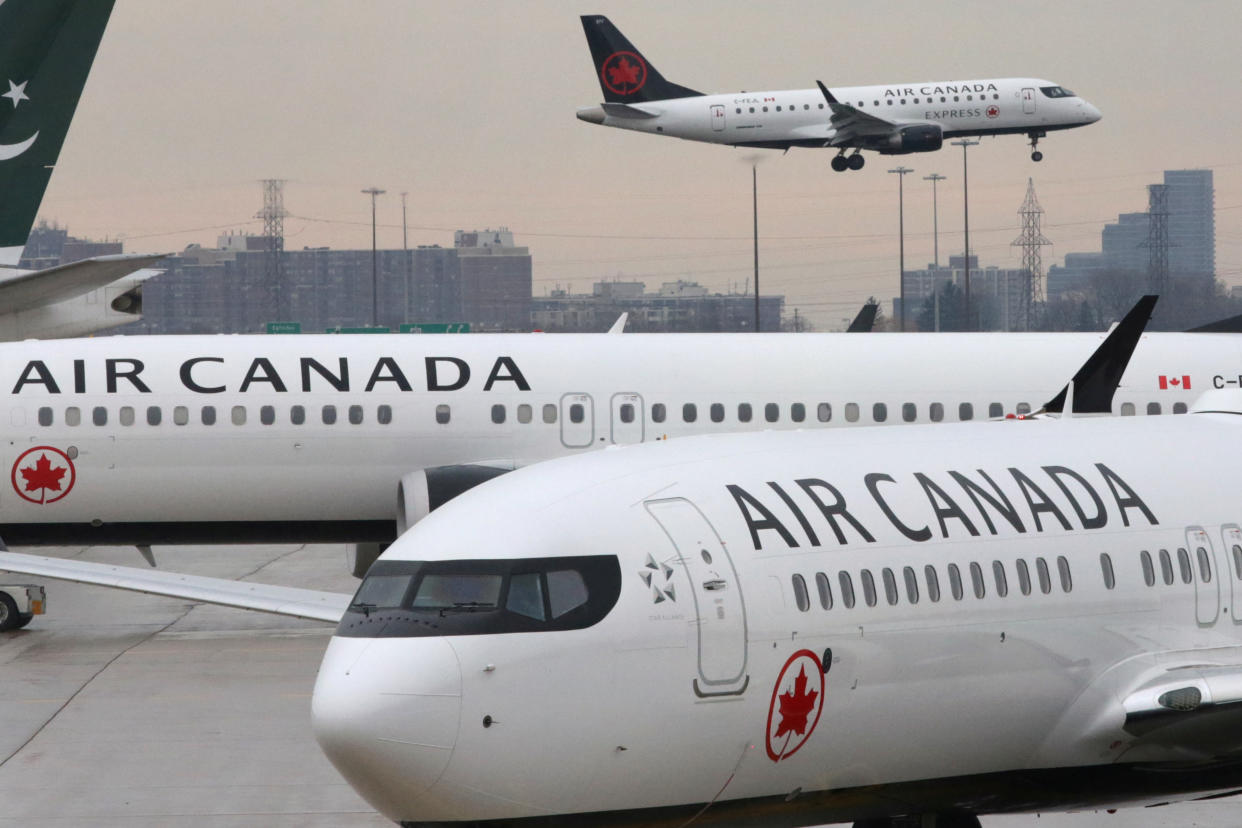'Extremely frustrating': Air Canada to keep Boeing 737 MAX out of schedule until 2020

Air Canada will keep its fleet of Boeing 737 MAX aircraft on the sidelines until at least next year, as the airline faces higher costs and constrained capacity following the worldwide grounding of the jet.
The Montreal-based company said following the release of second quarter results that it will keep its fleet of 24 Boeing 737 MAX planes grounded and out of its schedule until at least January 8, 2020, and that it has “no visibility on reliable timing” of when the aircraft will return to service.
The airline also warned that the grounding of the jet will continue to weigh on the company’s results in the third quarter – which includes the busy summer travel season – as capacity is expected to decline by two per cent compared to the same time last year.
“We are hopeful that this is a short-to-medium term issue that will not meaningfully impact our strategic direction, capital allocation practices or any other element of our plan,” Air Canada’s chief financial officer Michael Rousseau said on a conference call with analysts Tuesday morning following the release of second quarter results.
“It has been extremely frustrating to manage and has consumed a great deal of very valuable management time... Clearly, much uncertainty remains with respect to our MAX fleet.”
Air Canada also said it will take up to a year to fully reintegrate the new 737 MAX jets into the airline’s fleet after Boeing receives regulatory approvals that allow it to return to service.
The airline was forced to ground its entire fleet in March after the Ethiopian Airlines crash that killed all 157 people onboard. Boeing was scheduled to deliver an additional dozen aircraft in the second quarter of 2019, which would have seen Air Canada add an 100 additional flights per day into its schedule by the end of June. The airline was also scheduled to receive another 14 jets in the first half of 2020, bringing its 737 MAX fleet to 50. But that timeline is up in the air.
Fleet plans ‘in a complete state of flux’
“Since we do not have visibility on when the MAX will be ungrounded, the delivery schedule and our MAX fleet plan are in a complete state of flux,” Rousseau said.
That uncertainty means that Air Canada has held off on hiring pilots and cabin crews for the 12 planes that were supposed to be delivered in the second quarter. The airline also said it does not plan to hire people for the additional 14 planes it is supposed to receive next year until it receives further clarity from Boeing on the delivery schedule.
“As a result of this...it will take up to a year from the time the decision is made to reintegrate them into our fleet after the ungrounding for all 50 planes to fly,” Rousseau said.
Still, despite the lingering uncertainty surrounding the 737 MAX planes, Air Canada’s earnings in the second quarter soared above analysts expectations.
RBC Capital Markets analyst Walter Spracklin said in a note to clients that, when the impact of the 737 MAX uncertainty is excluded, “the company’s fundamentals are solid.”
“Despite the impact of the MAX, we are very encouraged by the company’s (passenger revenue per available seat mile) growth, yield management and cost controls,” Spracklin wrote.
Air Canada reported an adjusted net income in the three month period ending June 30 of $240 million, or 88 cents per diluted share, up from $129 million at the same time last year, or 47 cents per diluted share. Revenues also increased to $4.76 billion, an increase of $424 million from the same time in 2018.
Air Canada’s chief executive Calin Rovinescu said the second quarter results show how far the airline has come in its transformation over the last several years.
“The MAX grounding allowed us to display both agility and efficiency, with everyone doing an incredible job devising and implementing creative solutions for our fleet, schedule, network and operations,” he said.
“We covered about 97 per cent of the flying originally in the schedule and did so seamlessly, despite missing nearly 20 per cent of our narrow-body fleet.”
Earlier this month, Boeing said it would take a US$4.9 billion charge to cover possible compensation to airlines over the grounding of the 737 MAX plane.
Rovinescu would not disclose the exact costs related to the grounding of the jet until Air Canada settles its discussions with Boeing, as he said the airline doesn’t “really want to negotiate with Boeing in public.”
Download the Yahoo Finance app, available for Apple and Android.



